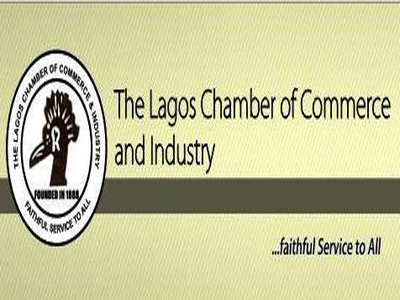The Lagos Chamber of Commerce and Industry (LCCI) has called for better management of the country’s inflation, foreign exchange(FX) and debt portfolio indexes.
LCCI President, Dr Michael Olawale-Cole, made the call during the Chamber’s 2022 first quarter press conference on Tuesday in Lagos.
He said better management would improve economical outcomes.
Olawale-Cole noted that addressing the macroeconomic variables effectively would significantly help to moderate pressures in the middle term.
He noted that high prices remained as major concern for businesses and households, especially given the challenges associated with insecurity, infrastructure deficit, and foreign exchange fluctuations.
He projected headline inflation to remain elevated as combination of food supply shocks, FX policies and illiquidity, higher energy costs, heightened insecurity continue to mount pressure on domestic consumer prices.
“Inflation at 15.4 per cent as of November 2021 remains elevated and portends serious implications for various economic agents, including households, businesses and investors.
“An inflationary environment erodes consumers’ real disposable income, weakens purchasing power, escalates production cost, worsens cost of living, dampens corporate profitability, and undermines investor confidence.
“The collaborative effort of the fiscal and monetary policymakers is required in addressing the structural constraints fuelling inflationary pressure.
“Addressing the security crisis across the country is not only highly imperative but also very urgent,” he said.
The LCCI President also anticipated Nigeria’s debt stock and debt-servicing to revenue ratio to remain elevated in 2022.
He said that the low yield environment was expected to keep domestic borrowings elevated in the short term as it favoured the Federal Government in mobilising funds at lower rates.
“An overview of the recently passed 2022 budget of N17.13tn puts the deficit at N6.25tn, recurrent and capital expenditure at N6.83 and N5.35tn, which represent 41.7 and 32.6 per cent of total expenditure, while 25.7 per cent will be used for debt servicing and repayment of maturing bonds.
“Putting all these into consideration, we see total debt stock within the range of N39 trillion and N40 trillion by year-end 2021.
“With projected borrowings of N4.893 trillion, N4.750 trillion, and N5.356 trillion in 2022, 2023, and 2024 respectively, debt sustainability concerns will remain elevated,” he said.
Olawale-Cole reiterated the LCCI’s position on the need for monetary authorities to liberalize the FX market by unifying the multiple FX rates and ensuring they were market-driven.
This, he said, was critical in the process of enhancing stability, liquidity, and transparency in the FX market.
He noted that in 2022, portfolio investors were likely to dump assets in Naira unless compensated by a higher yield environment and a market-reflective exchange rate.
“The unification is expected to improve the country’s currency management framework given that the multiple exchange rate systems had been creating uncertainty issues and sources of arbitrage,” he said.
He also stressed the need for a greater investment-friendly disposition of the government towards enhancing the quality of Nigeria’s trade infrastructure and better border management.




